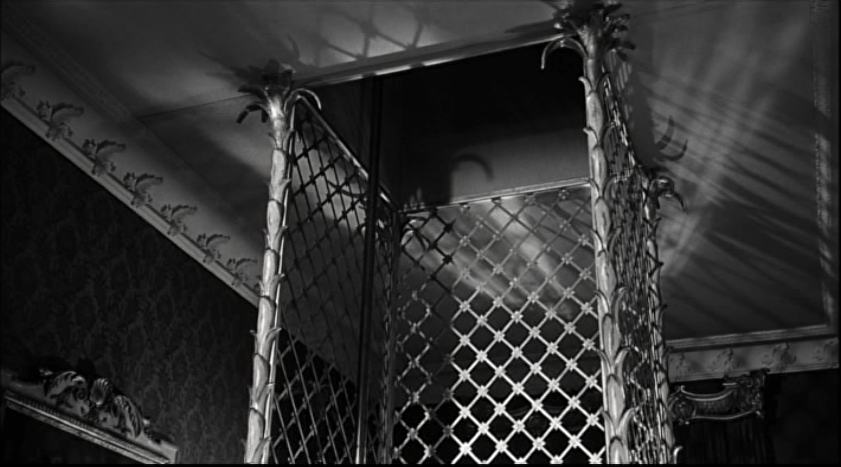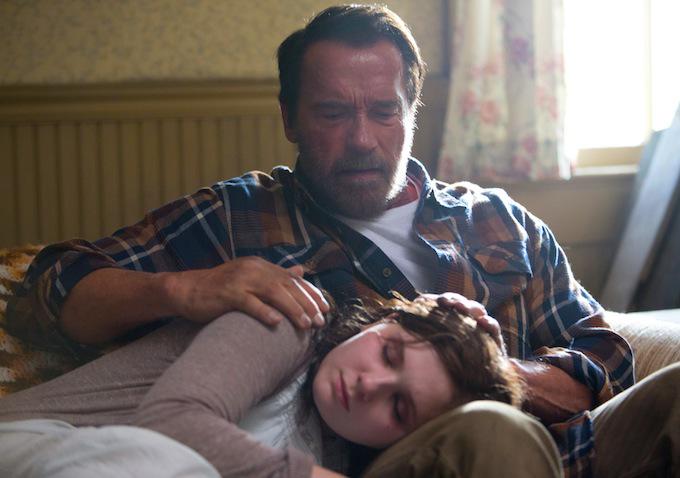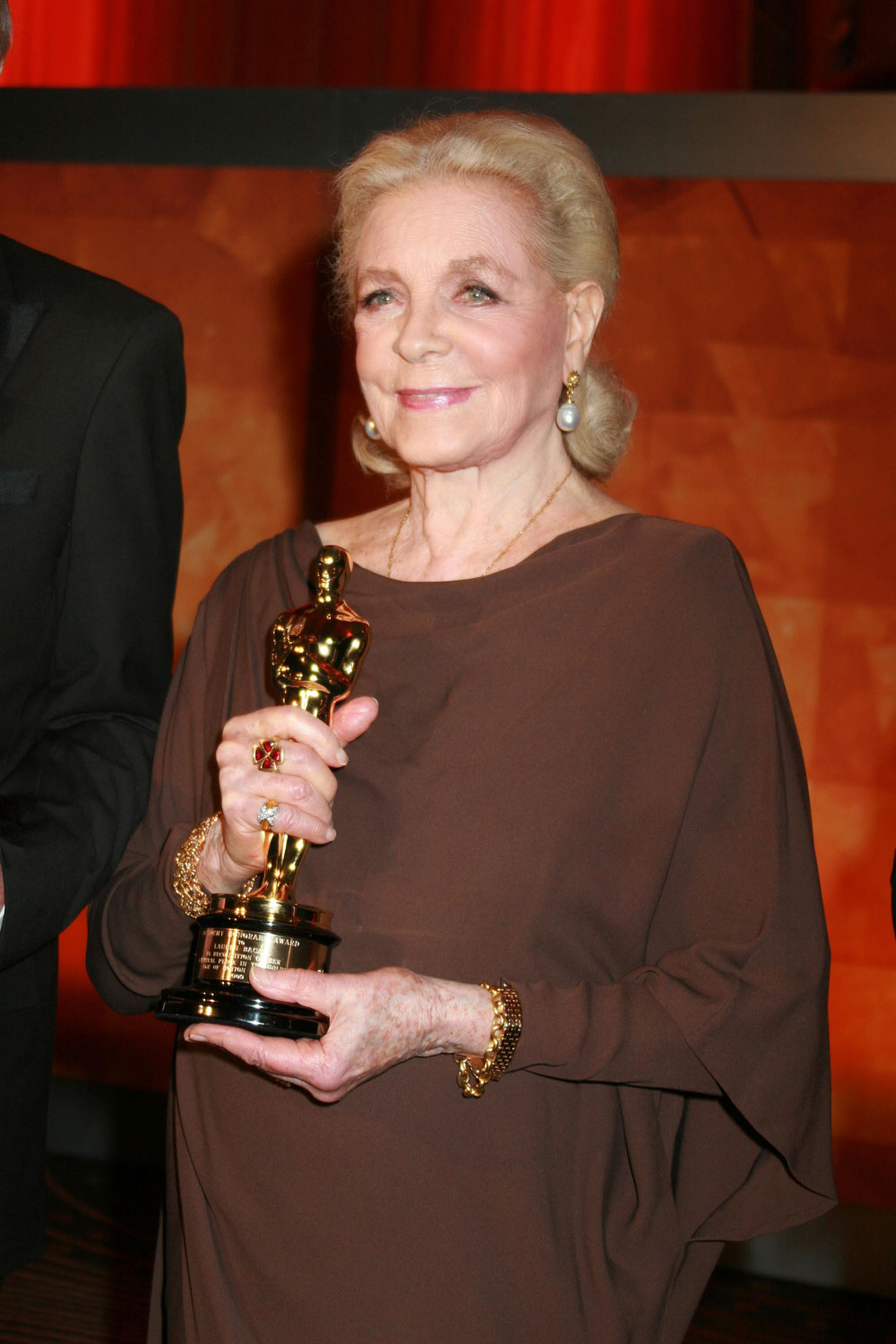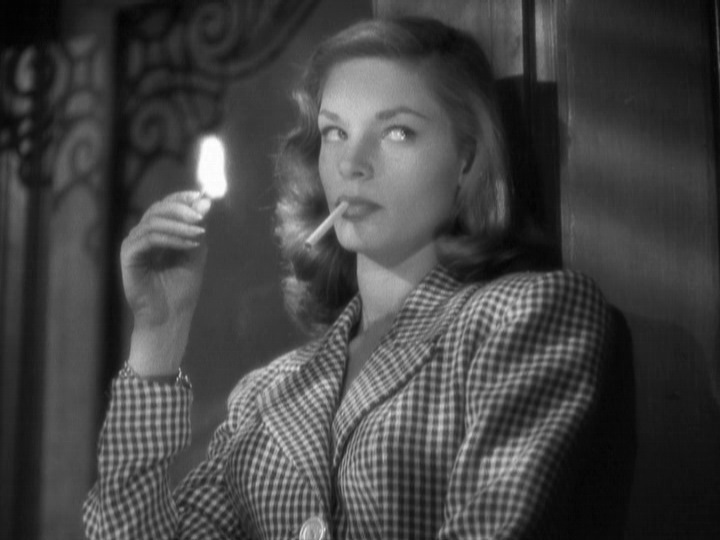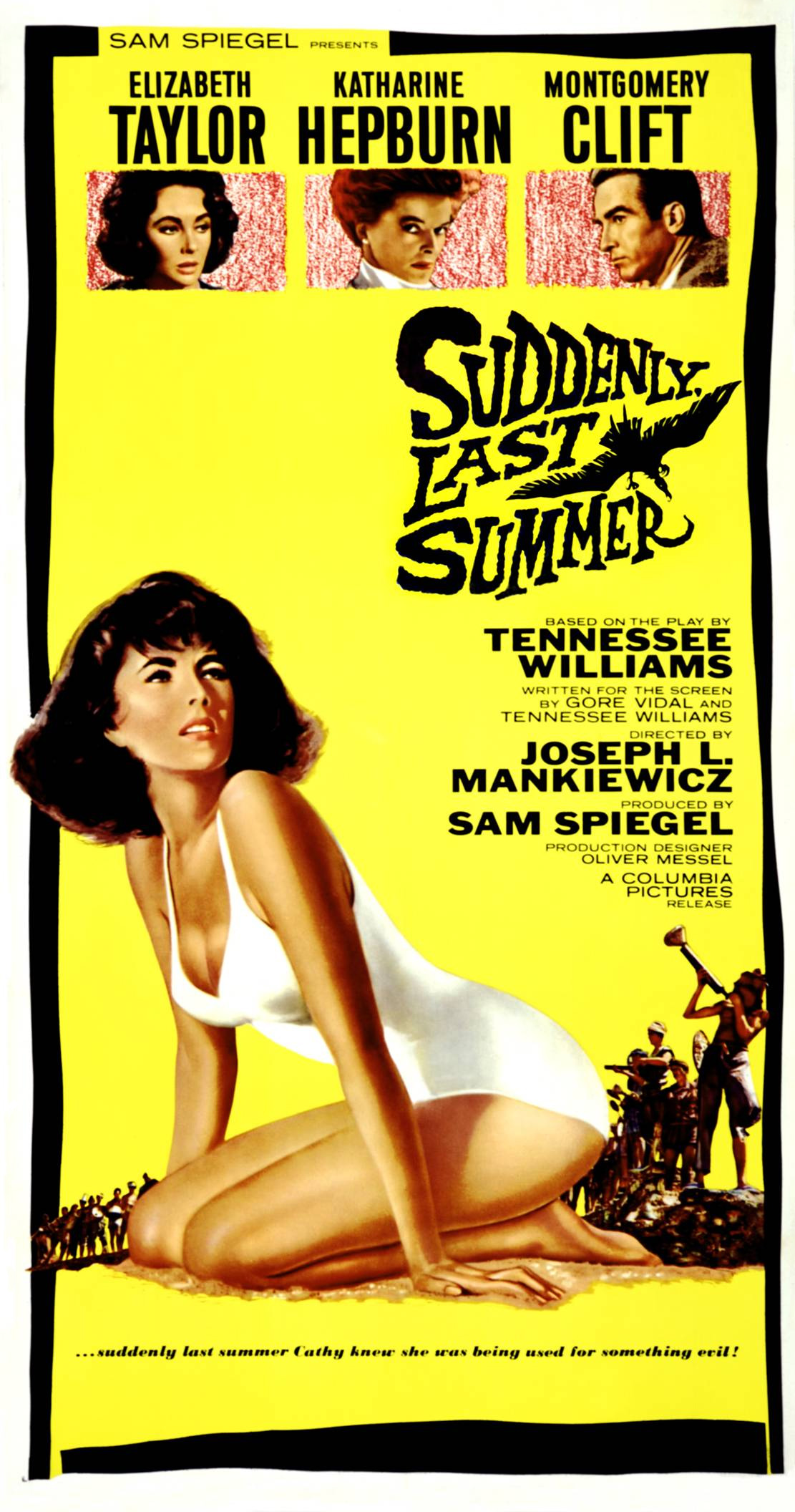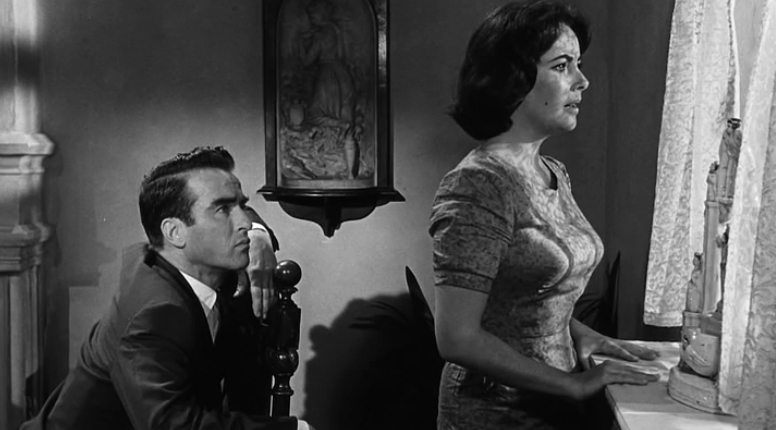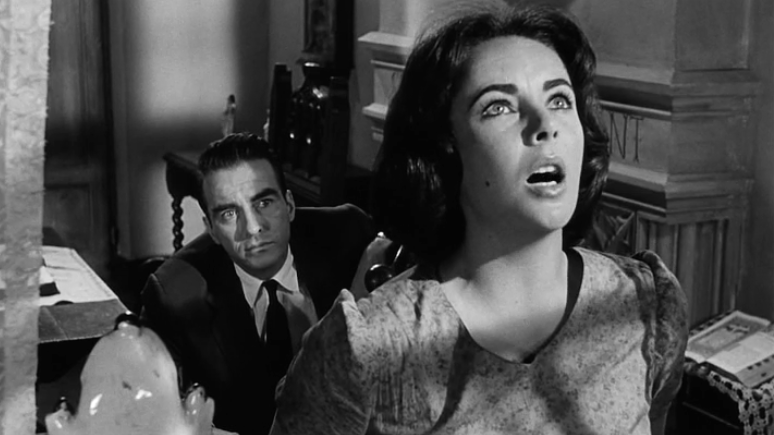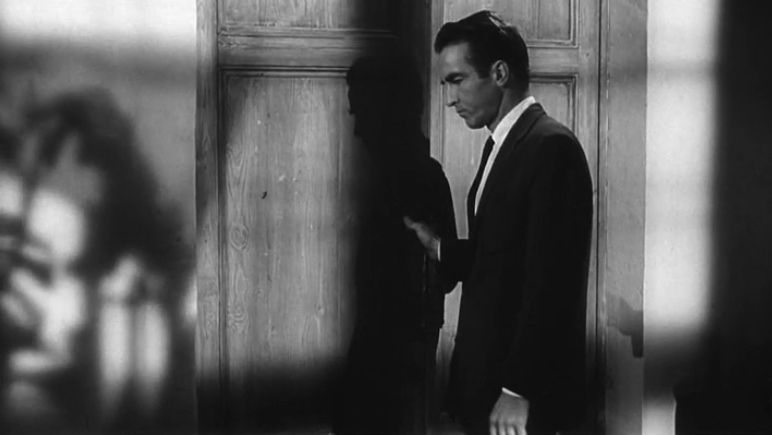A Year with Kate: Suddenly, Last Summer (1959)
 Wednesday, August 13, 2014 at 4:00PM
Wednesday, August 13, 2014 at 4:00PM Episode 33 of 52: In which Katharine Hepburn is like the Goddess from the Machine.
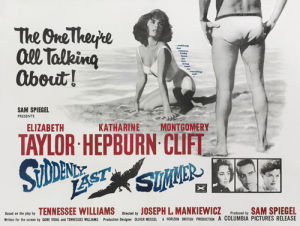 I want to write about Katharine Hepburn, but the movie keeps getting in the way! Reading last night’s contributions to Hit Me With Your Best Shot, I was struck by how many bloggers described Suddenly, Last Summer as “camp,” “wildly expressive,” or “absolutely batshit gonzo crazy.” This is a film that will not be ignored. It’s garish and shocking. The psycho-babble hasn’t aged well--as Nathaniel points out, such things rarely do. The themes of cannibalism, sexual deviance, and monstrous madness creep like kudzu vines hanging in Violet Venable’s garden, blocking the light and threatening to squeeze the resistance out of unwary viewers who venture into the film unwarned.
I want to write about Katharine Hepburn, but the movie keeps getting in the way! Reading last night’s contributions to Hit Me With Your Best Shot, I was struck by how many bloggers described Suddenly, Last Summer as “camp,” “wildly expressive,” or “absolutely batshit gonzo crazy.” This is a film that will not be ignored. It’s garish and shocking. The psycho-babble hasn’t aged well--as Nathaniel points out, such things rarely do. The themes of cannibalism, sexual deviance, and monstrous madness creep like kudzu vines hanging in Violet Venable’s garden, blocking the light and threatening to squeeze the resistance out of unwary viewers who venture into the film unwarned.
This unsettling excess had been, up to that point, unusual for director Joseph L. Mankiewicz--best known for character dramas--but can be easily traced to his collaborators. Gore Vidal adapted Tennessee Williams’s short lyric play about a rich widow’s attempts to hide her dead sons secrets by lobotomizing her niece into a Southern Gothic by way of Freaks. There are scenes with sanitariums and gardens, and many things are said. In fact, you might overlook how talkative the film is thanks to Jack Hilyard’s beautiful black and white cinematography. Elizabeth Taylor and Katharine Hepburn (both Oscar nominated) battle over and between Montgomery Clift against the lurid Louisiana locations created by Oliver Messel and William Kellner (also nominated). In short, this film is sensory overload.
But I digress. This series is about Katharine Hepburn, not censorship or deviance or strong production design. One shot stands out to me as the definitive Best Shot when discussing Kate’s turn as Violet Venable: an empty chasm in the ceiling into which Dr. Cukrowicz gazes as the elevator whirs to life. You hear Violet Venable before you see her...
